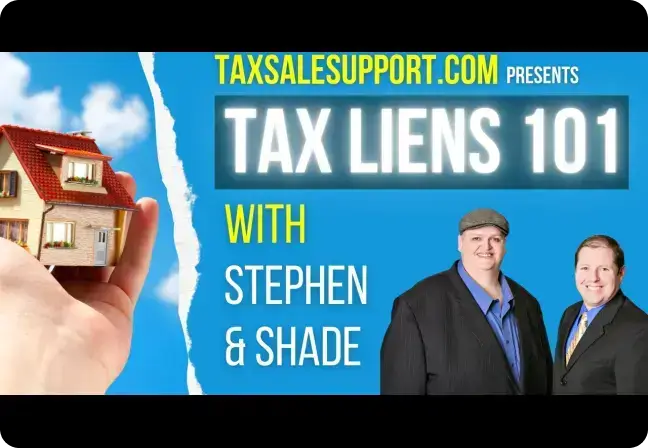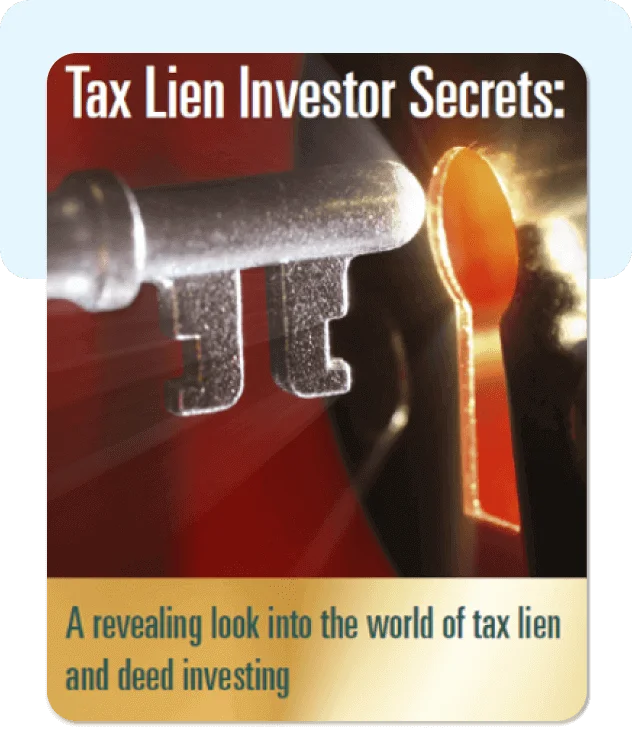All Categories
Featured
Table of Contents
Tax lien investing can give your profile direct exposure to real estate all without needing to actually possess home. Professionals, however, say the process is complicated and warn that newbie investors can easily get shed. Right here's whatever you need to understand concerning spending in a tax obligation lien certificate, consisting of how it works and the risks involved.
The notice typically comes prior to harsher activities, such as a tax levy, where the Internal Income Solution (IRS) or local or municipal federal governments can actually take somebody's residential or commercial property to recuperate the financial debt. A tax obligation lien certificate is developed when a homeowner has fallen short to pay their taxes and the city government issues a tax lien.
Tax obligation lien certifications are typically auctioned off to financiers aiming to revenue. To recover the delinquent tax bucks, communities can then market the tax lien certificate to exclusive capitalists, who take treatment of the tax obligation bill in exchange for the right to collect that cash, plus rate of interest, from the residential or commercial property proprietors when they eventually repay their balance.
Tax Lien Certificates Investing
permit for the transfer or job of delinquent property tax liens to the exclusive market, according to the National Tax Obligation Lien Organization, a not-for-profit that represents federal governments, institutional tax obligation lien investors and servicers. Below's what the procedure appears like. Tax lien financiers need to bid for the certification in a public auction, and exactly how that procedure works depends upon the details district.
Get in touch with tax obligation authorities in your location to inquire exactly how those delinquent tax obligations are accumulated. Public auctions can be online or face to face. Often winning quotes most likely to the financier ready to pay the cheapest rate of interest, in an approach known as "bidding down the rate of interest." The district develops an optimum price, and the bidder offering the most affordable rate of interest price beneath that optimum wins the auction.
Various other winning bids most likely to those who pay the highest possible cash money amount, or costs, above the lien quantity. What occurs following for investors isn't something that happens on a stock market. The winning bidder has to pay the entire tax costs, consisting of the delinquent financial obligation, rate of interest and charges. The investor has to wait until the building proprietors pay back their whole balance unless they do not.
While some financiers can be compensated, others might be caught in the crossfire of complicated guidelines and loopholes, which in the most awful of circumstances can lead to substantial losses. From a simple profit point ofview, the majority of financiers make their cash based upon the tax obligation lien's passion price. Rates of interest vary and depend upon the jurisdiction or the state.
Revenues, nevertheless, don't constantly total up to returns that high during the bidding process. In the end, the majority of tax liens acquired at auction are sold at rates in between 3 percent and 7 percent nationally, according to Brad Westover, executive director of the National Tax Lien Organization. Prior to retiring, Richard Rampell, formerly the president of Rampell & Rampell, a bookkeeping company in Palm Coastline, Florida, experienced this firsthand.
Tax Lien Investing Course
At first, the partners succeeded. However then big institutional investors, consisting of financial institutions, hedge funds and pension funds, chased after those greater returns in public auctions around the country. The larger financiers assisted bid down rates of interest, so Rampell's group wasn't making considerable money any longer on liens. "At the end, we weren't doing better than a CD," he says - tax lien and tax deed investing.
That hardly ever occurs: The taxes are usually paid prior to the redemption date. Liens also are very first in line for settlement, also before home mortgages. However, tax liens have an expiry date, and a lienholder's right to seize on the property or to accumulate their financial investment ends at the very same time as the lien.
Specific investors who are taking into consideration financial investments in tax obligation liens should, over all, do their research. Experts suggest staying clear of buildings with environmental damages, such as one where a gas station unloaded hazardous product.
The Truth About Tax Lien Investing
"You need to actually comprehend what you're purchasing," states Richard Zimmerman, a companion at Berdon LLP, a bookkeeping firm in New York City. "Understand what the building is, the area and values, so you do not buy a lien that you will not be able to collect." Potential investors should likewise inspect out the home and all liens against it, in addition to current tax sales and price of comparable residential or commercial properties.
"Individuals obtain a list of homes and do their due persistance weeks prior to a sale," Musa states. "Half the properties on the list may be gone due to the fact that the taxes obtain paid.
Are Tax Liens Good Investments

Westover states 80 percent of tax obligation lien certifications are sold to participants of the NTLA, and the agency can often match up NTLA participants with the appropriate institutional investors. That may make taking care of the procedure less complicated, particularly for a newbie. While tax lien investments can offer a generous return, understand the great print, details and regulations.
"But it's made complex. You have to understand the information." Bankrate's added to an update of this tale.
Real estate tax liens are an investment particular niche that is ignored by the majority of capitalists. Getting tax liens can be a rewarding though relatively high-risk company for those who are well-informed concerning realty. When people or organizations fall short to pay their residential property taxes, the communities or other government bodies that are owed those taxes put liens against the properties.
How Does Investing In Tax Liens Work
These claims on security are likewise exchanged amongst financiers who intend to generate above-average returns. With this procedure, the town obtains its taxes and the investor obtains the right to gather the quantity due plus rate of interest from the debtor. The procedure seldom ends with the financier seizing ownership of the residential property.
Liens are cost public auctions that occasionally involve bidding wars. If you need to seize, there might be various other liens versus the residential property that maintain you from taking ownership. If you obtain the residential or commercial property, there might be unanticipated expenditures such as fixings or perhaps forcing out the existing passengers. You can also spend indirectly through home lien funds.
It properly binds the residential property and avoids its sale till the owner pays the taxes owed or the residential property is seized by the financial institution. For example, when a landowner or house owner stops working to pay the taxes on their building, the city or county in which the residential or commercial property is located has the authority to place a lien on the building.
Property with a lien attached to it can not be marketed or re-financed until the tax obligations are paid and the lien is removed. When a lien is issued, a tax obligation lien certification is produced by the community that reflects the quantity owed on the home plus any type of passion or penalties due.

It's estimated that an added $328 billion of real estate tax was examined across the U.S. in 2021. The fad proceeds. Taxes on single-family homes were approximated to increase an average of 3.6% in 2022, to a total amount of $339.8 billion, and by 6.9% in 2023, to $363.3 billion. It's challenging to examine across the country real estate tax lien numbers.
Table of Contents
Latest Posts
Property Back Taxes Owed
2020 Delinquent Tax List
Tax Owed Homes For Sale
More
Latest Posts
Property Back Taxes Owed
2020 Delinquent Tax List
Tax Owed Homes For Sale